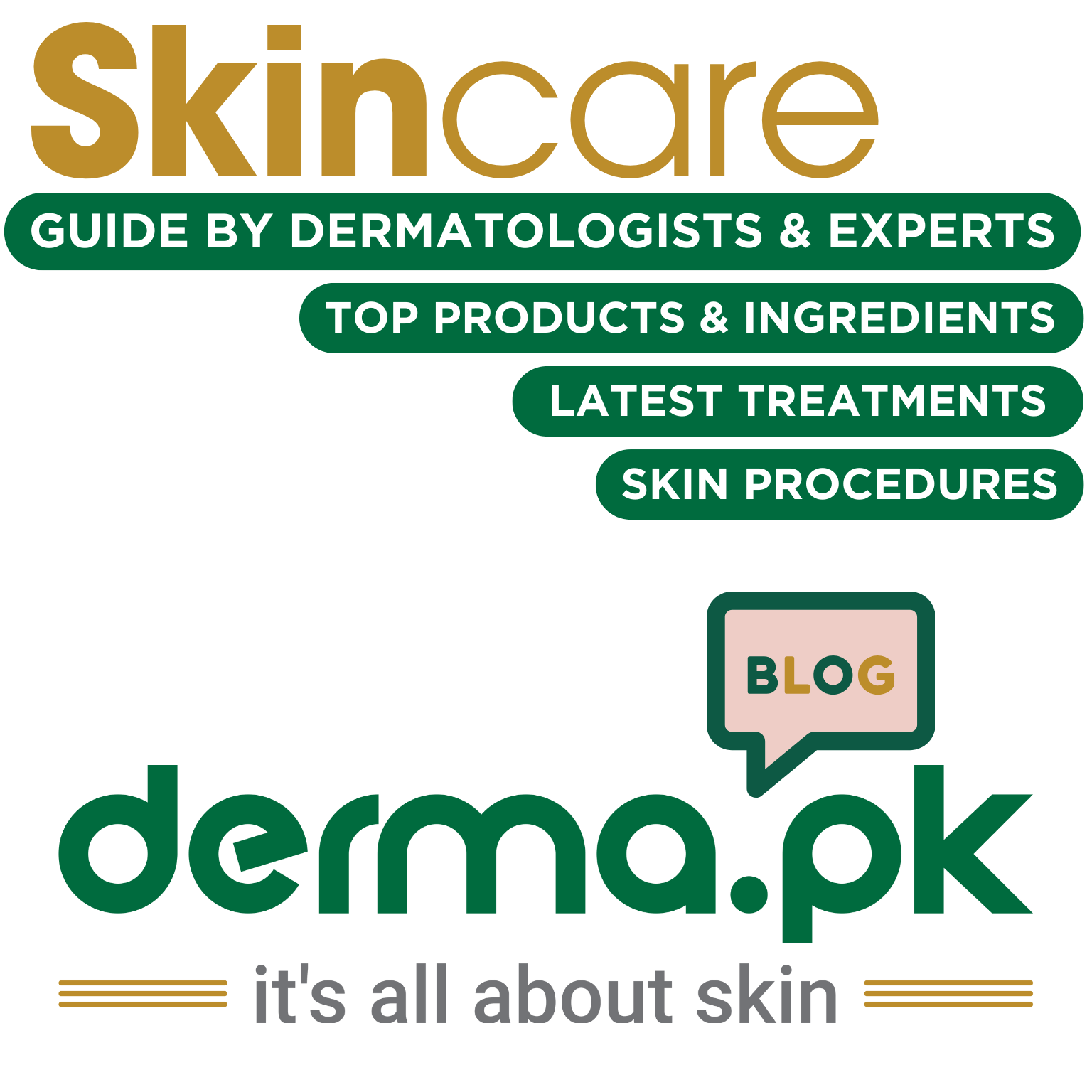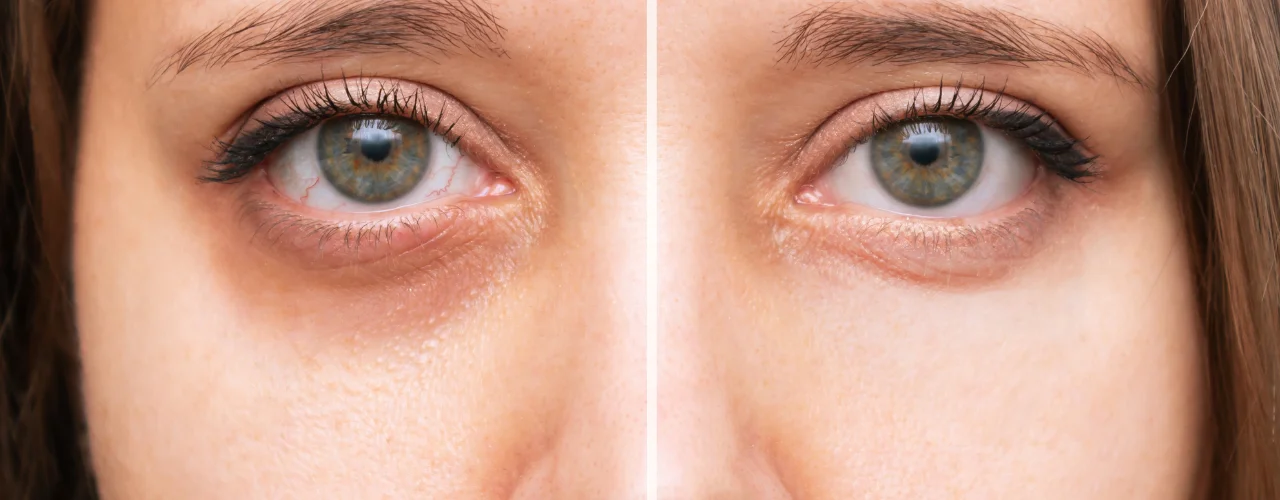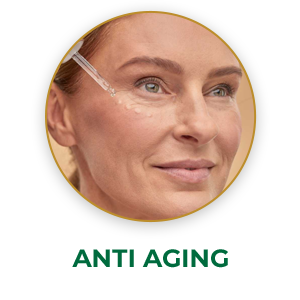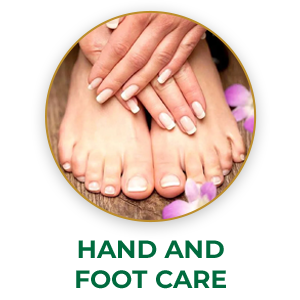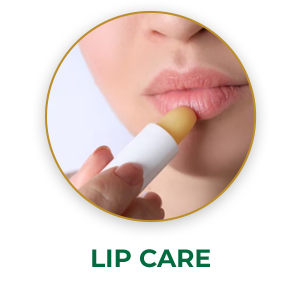Dark Eye Circles: A Comprehensive Review
Abstract:
Dark eye circles are a common cosmetic concern, often contributing to a tired or aged appearance. This article aims to provide a comprehensive review for medical professionals, covering the anatomy of the under-eye area, different types of dark circles, their causes, differential diagnoses, and various treatment options.
Anatomy of the Under-Eye Area:
The under-eye area is characterized by thin and delicate skin with minimal subcutaneous fat, making it susceptible to hyperpigmentation. Superficial blood vessels contribute to their visibility through the thin skin. Additionally, orbital fat and the tear trough play significant roles in the appearance of dark circles. Atrophy or displacement of orbital fat can create shadows, while deepening of the tear trough can accentuate shadows and under-eye circles.
Types of Dark Circles:
Dark circles can be categorized into three main types:
- Pigmented circles: Caused by melanin hyperpigmentation, post-inflammatory hyperpigmentation, or hemosiderin deposition.
- Vascular circles: Result from visible blood vessels through thin skin, often seen in individuals with fair skin.
- Structural circles: Caused by shadows resulting from tear trough deepening, volume loss, or bony prominences.
Causes of Dark Circles:
A combination of factors can contribute to the development of dark circles, including:
- Age-related changes: Loss of collagen and elastin, fat pad atrophy, and thinning skin contribute to dark circles as we age.
- Genetics: Facial bone structure, skin tone, and predisposition to hyperpigmentation play a significant role in their appearance.
- Lifestyle factors: Lack of sleep, dehydration, sun exposure, smoking, and alcohol consumption can exacerbate dark circles.
- Medical conditions: Allergies, eczema, thyroid disorders, anemia, and iron deficiency can contribute to both pigmented and vascular dark circles.
- Medications: Certain medications, like oral contraceptives and topical steroids, can cause hyperpigmentation.
Differential Diagnosis:
It is crucial to differentiate dark circles from other conditions that may present similarly, such as:
- Periorbital hyperpigmentation: Differentiate from other causes of hyperpigmentation like melasma or post-inflammatory hyperpigmentation.
- Periorbital edema: Rule out allergic reactions, sinusitis, or thyroid disorders as potential underlying causes.
- Vascular malformations: Consider underlying vascular anomalies in cases of prominent redness or pulsation.
Assessment and Diagnosis:
A comprehensive assessment is essential for proper diagnosis and treatment of dark circles. This includes:
- Patient history: Detailed history about sleep habits, medical conditions, medications, and lifestyle factors.
- Physical examination: Close examination of the under-eye area to determine the type of dark circles and presence of any associated signs.
- Additional investigations: Depending on the suspected cause, further investigations like blood tests, allergy testing, or skin biopsy may be necessary.
Treatment Options:
Treatment options for dark circles vary depending on the underlying cause and type. Common options include:
- Lifestyle modifications: Addressing contributing factors like sleep deprivation, dehydration, and sun exposure.
- Topical treatments: Bleaching creams, lightening agents, and retinoids can help reduce melanin hyperpigmentation.
- Vascular lasers: Can improve the appearance of vascular circles by targeting visible blood vessels.
- Fillers: Hyaluronic acid fillers can help restore volume loss and reduce the appearance of shadows.
- Surgical procedures: Blepharoplasty and fat grafting procedures can address more severe cases.
Dark eye circles are a complex issue with various contributing factors. Understanding the anatomy, types, causes, and differential diagnoses is essential for medical professionals to provide accurate diagnosis and effective treatment options for their patients. By addressing the underlying causes and utilizing appropriate treatment modalities, dark circles can be significantly improved, enhancing the overall appearance and well-being of individuals.
There are a multitude of factors that can contribute to the formation of dark eye circles. Some of the most common causes include:
Age-related changes:
- Loss of collagen and elastin: As we age, our skin naturally loses collagen and elastin, leading to thinner and more transparent skin. This allows for the underlying blood vessels and melanin to become more visible, contributing to dark circles.
- Fat pad atrophy: The orbital fat pads that support the under-eye area also shrink over time, leading to a sunken appearance and the formation of shadows.
- Deepening tear trough: The tear trough is the natural groove that runs from the inner corner of the eye to the cheek. With age, this groove can deepen, creating a shadowed appearance under the eyes.
Genetics:
- Facial bone structure: Certain facial bone structures, such as prominent cheekbones, can cast shadows under the eyes, making them appear darker.
- Skin tone: Individuals with fair skin tend to have more visible blood vessels, making them more susceptible to vascular dark circles.
- Predisposition to hyperpigmentation: Some individuals are genetically predisposed to develop hyperpigmentation, which can manifest as dark circles.
Lifestyle factors:
- Lack of sleep: When we don’t get enough sleep, the blood vessels under our eyes dilate, making them more visible. Additionally, fatigue can lead to fluid build-up under the eyes, causing puffiness and a darker appearance.
- Dehydration: When we are dehydrated, the skin under our eyes can become dry and wrinkled, making dark circles more noticeable.
- Sun exposure: Exposure to ultraviolet (UV) radiation can cause hyperpigmentation and damage collagen and elastin, contributing to dark circles.
- Smoking and alcohol consumption: These habits can irritate the skin and damage blood vessels, leading to dark circles and other skin problems.
Medical conditions:
- Allergies: Allergies can cause inflammation and swelling under the eyes, leading to dark circles and puffiness.
- Eczema: This inflammatory skin condition can cause darkening of the skin under the eyes.
- Thyroid disorders: Thyroid problems can affect melanin production, leading to hyperpigmentation and dark circles.
- Anemia: Iron deficiency anemia can cause pale skin and dark circles.
Medications:
- Certain medications, such as oral contraceptives and topical steroids, can cause hyperpigmentation as a side effect.
It’s important to note that dark circles can be caused by a combination of these factors. A thorough evaluation by a healthcare professional can help determine the underlying cause and recommend the most effective treatment options.
The treatment for dark circles depends on the underlying cause and severity. Here’s a breakdown of some common approaches:
Lifestyle modifications:
- Getting enough sleep: Aim for 7-8 hours of sleep each night to help prevent blood vessel dilation and fluid build-up under the eyes.
- Staying hydrated: Drink plenty of water throughout the day to keep your skin hydrated and plump.
- Protecting yourself from the sun: Wear sunscreen daily and wear sunglasses to protect your eyes and the delicate skin around them from sun damage.
- Managing stress: Stress can worsen dark circles by increasing inflammation and cortisol levels. Practice relaxation techniques like yoga or meditation to manage stress.
- Quitting smoking and reducing alcohol consumption: These habits can damage the skin and blood vessels, worsening dark circles.
Topical treatments:
- Bleaching creams: These products contain ingredients like hydroquinone or kojic acid, which can lighten hyperpigmentation and reduce the appearance of dark circles.
- Retinoids: Retinol creams and serums can help improve collagen production and reduce the appearance of fine lines and wrinkles, which can contribute to dark circles.
- Eye creams and gels: These products often contain caffeine, hyaluronic acid, and other ingredients designed to hydrate, brighten, and de-puff the under-eye area.
Medical treatments:
- Vascular lasers: These lasers target visible blood vessels under the eyes, effectively reducing the appearance of vascular dark circles.
- Fillers: Hyaluronic acid fillers can be injected into the tear trough to reduce the appearance of shadows and add volume to the under-eye area.
- Chemical peels: Chemical peels can help to remove the top layer of skin and reduce hyperpigmentation.
- Microneedling: This minimally invasive procedure creates tiny punctures in the skin, stimulating collagen production and improving skin tone and texture, potentially reducing dark circles over time.
Surgical procedures:
- Blepharoplasty: This surgery removes excess skin and fat from the upper and lower eyelids. It can be an effective option for individuals with significant dark circles due to aging or genetic factors.
- Fat grafting: Fat can be transferred from other areas of the body to the under-eye area to add volume and reduce the appearance of shadows.
It’s important to consult with a dermatologist or other healthcare professional to discuss the best treatment options for your specific case. They can assess the underlying cause of your dark circles and recommend the most effective treatment approach.
Here are some additional tips for managing dark circles:
- Apply cool compresses to your eyes: This can help reduce puffiness and inflammation.
- Elevate your head while sleeping: This can help prevent fluid build-up under your eyes.
- Use a concealer: Concealer can help to mask the appearance of dark circles.
Choosing the appropriate treatment and combining it with healthy lifestyle habits can significantly improve the appearance of dark circles and restore a brighter, more youthful appearance.
Derma & Dental Clinic: Your One-Stop Solution for Dark Eye Circles
(Conveniently located at 48/38 Quaid Commercials Main Boulevard Sector E, Bahria Town Lahore)
At Derma & Dental Clinic, we understand the frustration and impact dark eye circles can have on your confidence and appearance. That’s why we offer a comprehensive range of solutions to address this common concern, encompassing both topical and medical treatments.
Book your appointment today:
- UAN: 0304-111-5000
- WhatsApp: +923205999650
Why Choose Derma & Dental Clinic?
At Derma & Dental Clinic, our commitment lies in providing personalized, evidence-based treatments for dark circles. We take pride in:
- Experienced and skilled professionals: Our team of dermatologists and specialists possess the expertise and knowledge to accurately diagnose the cause of your dark circles and recommend the most effective treatment plan.
- State-of-the-art technology: We utilize advanced equipment and treatment methods to deliver optimal results with minimal downtime.
- Patient-centered approach: We prioritize open communication and individualized care, ensuring your concerns are addressed, and your treatment plan aligns with your expectations.
Visit Derma & Dental Clinic today and take the first step towards achieving a brighter, more confident you. Our team is dedicated to helping you overcome dark circles and reveal your radiant best.
